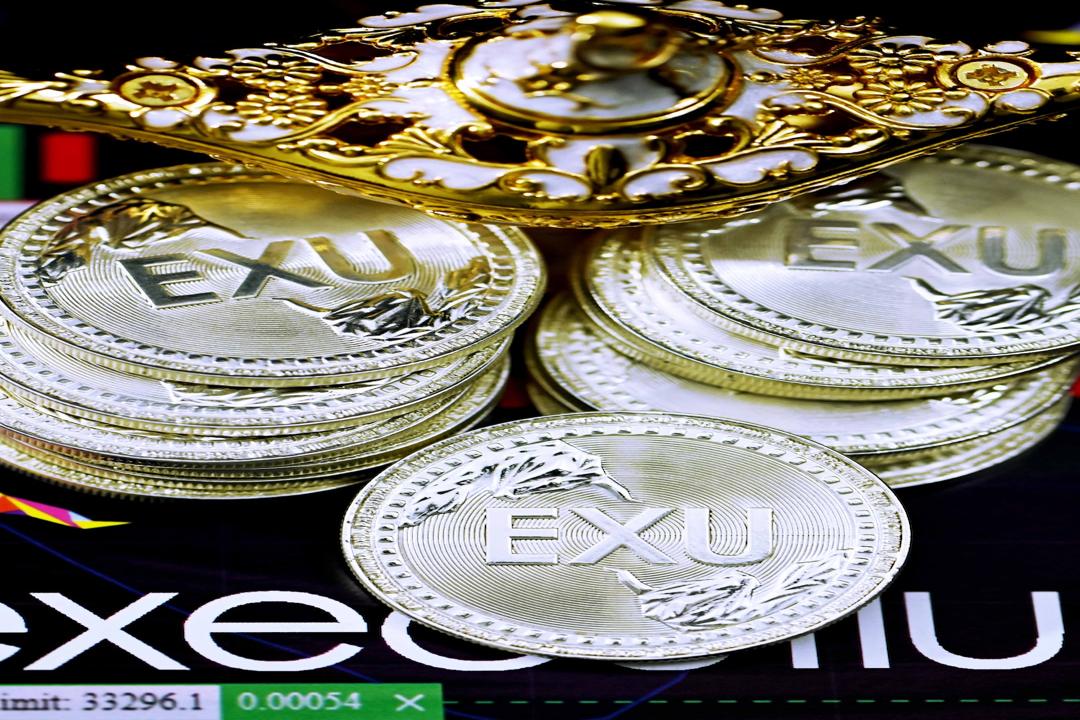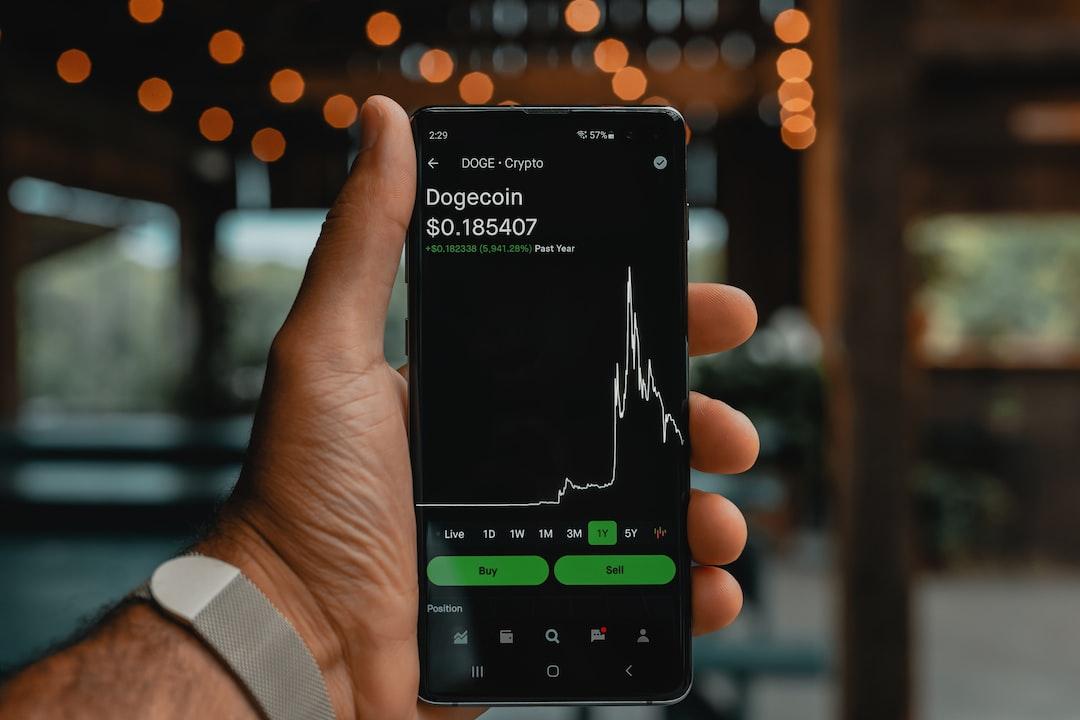UBS believes that any fluctuations in the global risk-free rate will disrupt all markets.
This article is sourced from Wall Street Watch, organized, translated, and written by Foresight News.
(Background: Trump’s tariffs have shattered the “safe-haven myth” of U.S. Treasuries, which Wall Street now considers “risky assets.” Is China and Japan the culprits of stock dumping?)
(Supplementary background: The unexpected decline of U.S. CPI in March has increased the likelihood of interest rate cuts by the Federal Reserve. However, why have Bitcoin and U.S. stocks not risen but instead fallen?)
U.S. stock market volatility has rarely surpassed that of emerging markets and Bitcoin, while U.S. Treasuries, traditionally viewed as safe assets, have experienced severe fluctuations, leading investors to question the wisdom of holding U.S. assets. UBS asserts that once the global risk-free rate shows volatility, it will disrupt all markets. Analyst Ed Al-Hussainy pointedly stated, “I’m not actually worried about a recession; I’m worried about a financial crisis.”
On Friday, U.S. stocks returned to a rising trend, appearing to indicate a recovery in market risk appetite. However, in reality, investors have begun to doubt the safety of U.S. assets, particularly as the severe volatility of U.S. Treasuries has reignited fears of a financial crisis on Wall Street.
In the past week, the yield on the 10-year U.S. Treasury bond recorded its largest single-week jump in over 20 years, while U.S. stocks plummeted before surging again. On the surface, the S&P 500 index rose over 5% for the week, U.S. Treasury yields returned to February levels, and Bitcoin closed higher, seemingly indicating that all was normal.
However, concerningly, the simultaneous decline of U.S. stocks, Treasuries, and the dollar this week is characteristic of emerging market behavior, rather than the performance of the world’s safest assets. Particularly, the significant volatility of long-term U.S. Treasuries this week suggests an imminent liquidity crisis, prompting investors to question the wisdom of holding U.S. assets. UBS Group Chief Strategist Bhanu Baweja expressed:
“This is terrifying. We are redefining the global risk-free rate; if the global risk-free rate shows volatility, it will disrupt all markets.”
Rare historical volatility: U.S. asset fluctuations surpass emerging markets and Bitcoin
Trump’s recent tariff policies have not only undermined confidence in the U.S. economy but have also shaken investors’ trust in U.S. policy direction and dollar assets. Even by Wall Street’s long historical standards, this week has been a brutal trading week, with U.S. stocks resembling a roller coaster, and U.S. Treasury and dollar trends suggesting that America’s safe-haven status seems at risk:
- On Monday, a so-called false tariff message triggered a 15-minute pulse shock in the U.S. stock market, with the Nasdaq briefly surging by 10% from lows, while Treasuries plummeted.
- On Tuesday, the absence of tariff exemptions crushed hopes for a U.S. stock rebound, with the Dow Jones Industrial Average plunging over 2000 points intraday, and the S&P erasing more than 4% gains to turn negative, while the U.S. Treasury market experienced a significant unwinding sell-off.
- On Wednesday, the U.S. delayed some tariffs, and all three major U.S. stock indices closed up nearly 8%, with the S&P seeing its largest gain since 2008, and trading volume hitting a historic high of 30 billion shares. The yield on the 10-year Treasury surged before retreating.
- On Thursday, global investors fled U.S. assets, leading to a triple hit in U.S. stocks, bonds, and currency, with the Nasdaq dropping over 4%, the dollar experiencing its largest daily drop in two years, and gold reaching new highs.
- On Friday, hints of possible Federal Reserve intervention led to a rebound in U.S. stocks, but the decline in Treasuries and the dollar warned that America’s safe-haven status seems at risk.

Andrea DiCenso, an investment manager at Loomis, Sayles & Company, stated, “Is the U.S. market starting to behave like an emerging market? There is no doubt, yes, that is exactly what we are seeing.”
According to data, the volatility of U.S. stock ETFs even exceeded that of funds tracking emerging markets, and at times was greater than that of Bitcoin. Such a situation has rarely occurred outside of the pandemic, the crisis of August last year, and the period of aggressive interest rate hikes by the Federal Reserve.

Neil Dutta of Renaissance Capital bluntly stated in an email to clients, “The S&P 500 is trading like a cryptocurrency, which may not be a good thing.”
Severe fluctuations in the risk-free rate signal a potential financial crisis
When the long-term bond market experiences extreme volatility, large spreads, and low liquidity, it can impact all other capital markets, particularly putting upward pressure on interest rates and U.S. government debt, which could long-term evolve into a financial crisis.
The volatility of U.S. Treasuries soared this week, with the volatility of 20-year Treasuries quickly catching up to the VIX volatility of U.S. stocks.

Although the decline in 30-year Treasuries this week did not continue the previous week’s trend and showed an overall expansion, the bid-ask spread for the benchmark 30-year bonds exhibited some cracks—this is a signal of a long-term decline in liquidity in the U.S. Treasury yield curve. The spread this week nearly reached a full basis point, a level that hasn’t been seen since the beginning of 2023.

Confidence in the quality of U.S. stocks, fixed income, and currency assets outside the U.S. has been damaged. Nathan Thooft of Fundstrat stated, “The question is whether this is a temporary shock or a long-term shift? We still believe the former. But this does not negate that some large asset owners are looking for alternatives and diversification in safe-haven assets.”
Analyst Ed Al-Hussainy further pointedly noted that he is not worried about a recession but is concerned about a financial crisis.
Funds flowing into safe-haven assets, Wall Street calls for Fed intervention
The shadow of a financial crisis has caused global investors to withdraw from the U.S. and flock into the European bond market, gold, yen, and Swiss franc, among other safe-haven assets, to avoid broader turmoil.
German bond yields remained basically unchanged this week, while the yield on 10-year U.S. Treasuries soared by over 50 basis points, marking the largest gap since 1989 where U.S. Treasury yields lag behind German bond yields. In contrast, the dollar index fell below the psychological threshold of 100, marking the worst two-week drop since November 2022, while the euro appreciated significantly against the dollar, with this week’s appreciation exceeding that of the yen.

Extreme volatility has placed unprecedented psychological pressure on investors and traders, with calls for the Federal Reserve to intervene emerging on Wall Street. On Friday, JPMorgan CEO Jamie Dimon stated he expects “chaos” in the U.S. Treasury market.
“When you have many volatile markets, wide trading spreads in Treasury bonds, and low liquidity, it affects all other capital markets,” Dimon remarked during a conference call on financial results, “This is a reason for the Federal Reserve to intervene, not to help the banks.”
Fortunately, Federal Reserve official Susan Collins stated on Friday that if market conditions become chaotic, the Federal Reserve “will absolutely be ready” to help stabilize financial markets. However, she emphasized: as long as the market continues to perform well, we do not see overall liquidity concerns.



